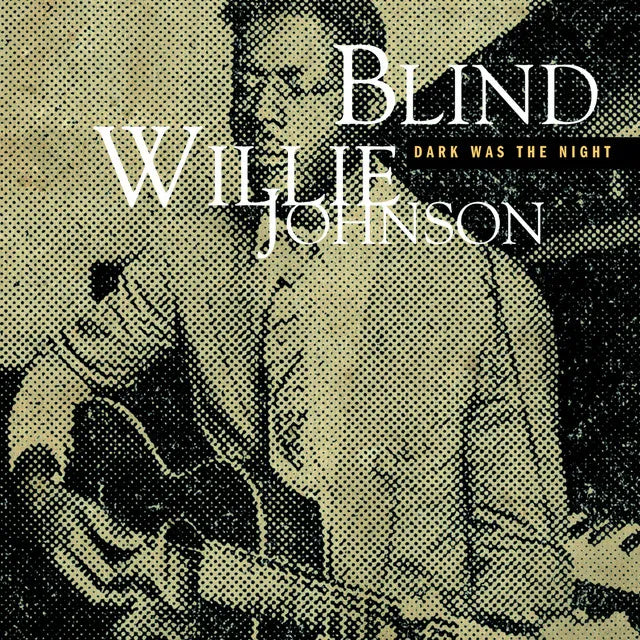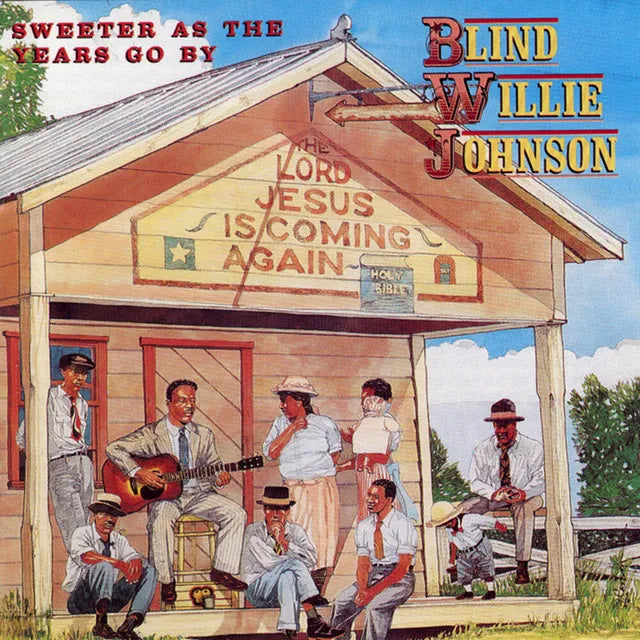Blind Willie Johnson Biography
Who is Blind Willie Johnson? A Brief Career Overview
Blind Willie Johnson, the evocative gospel-blues artist, has earned his place in the pantheon of musical legends. Renowned for his spine-tingling slide guitar work and impassioned vocals, Johnson's music transcends generations, blending elements of gospel and traditional blues to create a unique sound that is both haunting and inspiring. As a prolific singer, songwriter, and musician, he recorded a remarkable thirty songs between 1927 and 1930, with classics that still resonate today such as "Dark Was the Night, Cold Was the Ground" and "Jesus Make up My Dying Bed." Johnson's raw talent and gospel fervor carved out a niche that has influenced countless musicians across genres. His legacy is not just preserved in digital formats but celebrated in the tangible beauty of vinyl records--a medium that authentically captures the depth and soul of his music. Vinyl collectors cherish his limited editions, making them an essential part of any serious blues enthusiast's collection.
Blind Willie Johnson's Early Life and Background
Born around 1902 in a small town just south of Waco, Texas, Blind Willie Johnson's life was marked with hardship from the very beginning. Orphaned early when his mother passed away, his world changed drastically at the age of seven when a tragic accident involving lye water, thrown during a domestic dispute, left him blind for life. Growing up in a deeply religious environment, Johnson was immersed in the church, which instilled in him a profound sense of spirituality that would later permeate his music. Despite his blindness, Johnson's early experiences--like learning to play a cigar box guitar gifted by his father and performing on street corners--shaped his resilience and burgeoning passion for music. His connection to the vibrant street culture of Texas laid the foundation for his future as a street performer and preacher, providing a backdrop that would later translate into the soulful grooves of his vinyl recordings.
The Musical Influences That Shaped Blind Willie Johnson's Sound
Blind Willie Johnson drew from a rich tapestry of musical influences that shaped his iconic sound. Notably, he was inspired by other notable musicians like Blind Lemon Jefferson and Madkin Butler, whose gospel-infused melodies and spirited performances left a lasting impression on him. The blending of traditional African-American spirituals with the raw energy of blues reflected in Johnson's work showcases the complexity of his artistry. His unique slide guitar technique, where he skillfully used a pocket knife instead of a traditional bottleneck, became a distinctive hallmark of his performances. Furthermore, the spiritual essence embodied in the gospel blues genre was deeply resonant in albums he admired on vinyl, influencing his style during his formative years and leading him to create music that is part lament, part celebration--timeless treasures for collectors seeking authenticity in their records.
How Blind Willie Johnson Entered the Music Industry
Johnson's foray into the music industry began as a heartfelt venture during his street performances, where he garnered an audience with his powerful voice and guitar skills. His first major recording session took place in December 1927 with Columbia Records, producing songs that would become staples in the gospel-blues genre. Despite his initial success, including his heavy rotation in street performances and local venues, the road to recognition came with its challenges. The production and distribution of his music on vinyl were fraught with difficulties but ultimately led to the powerful recordings that defined his career. Johnson's resilience and determination set the stage for him to continue performing and recording throughout the late 1920s, leading to significant breakthroughs that established him as one of the most revered figures in gospel-blues history. His passion radiated through each track, compelling fans to seek out the beautifully crafted records that encapsulated his artistry.
Blind Willie Johnson's Breakthrough and Rise to Fame
Blind Willie Johnson's breakthrough came swiftly following his initial recording sessions, particularly with his hauntingly beautiful "Dark Was the Night, Cold Was the Ground," which showcased not just his technical prowess but also his emotive depth. Released as part of Columbia's race record series, this song, along with others, gained critical acclaim and solidified his place in the musical landscape of the late 1920s. The vinyl release of his works marked a significant moment, allowing enthusiasts and collectors alike to engage with his music in a tangible way. As he garnered media attention and invitations for more substantial performances, Johnson's performances grew increasingly important to the blues and gospel communities. The accolades followed, and while his commercial opportunities dwindled during the Great Depression, the impact of his records endured, allowing a new generation of artists and listeners to appreciate his contributions to music.
How Personal Life Shaped Blind Willie Johnson's Music
The emotional currents of Blind Willie Johnson's personal life seeped distinctly into his music, adding layers of depth and poignancy to his art. His hardships, including struggles with poverty, familial loss, and ultimately, the tragic ending of his life, informed his lyrical themes and vocal delivery. The profound impact of his relationships, notably with his wife Angeline, shaped his music, as they often performed together, interweaving their lives and musical journeys. Additionally, Johnson's commitment to faith and spirituality sparked themes of hope and redemption in his songs, making them both powerful and moving. While he faced several personal challenges, including a lack of industry support, Johnson's resilience shone brightly through his music, transforming pain into prayerful song. His involvement with the community as a preacher translated into melodies that resonated deeply with listeners, capturing the essence of a human experience that any lover of vinyl would deeply appreciate.







































